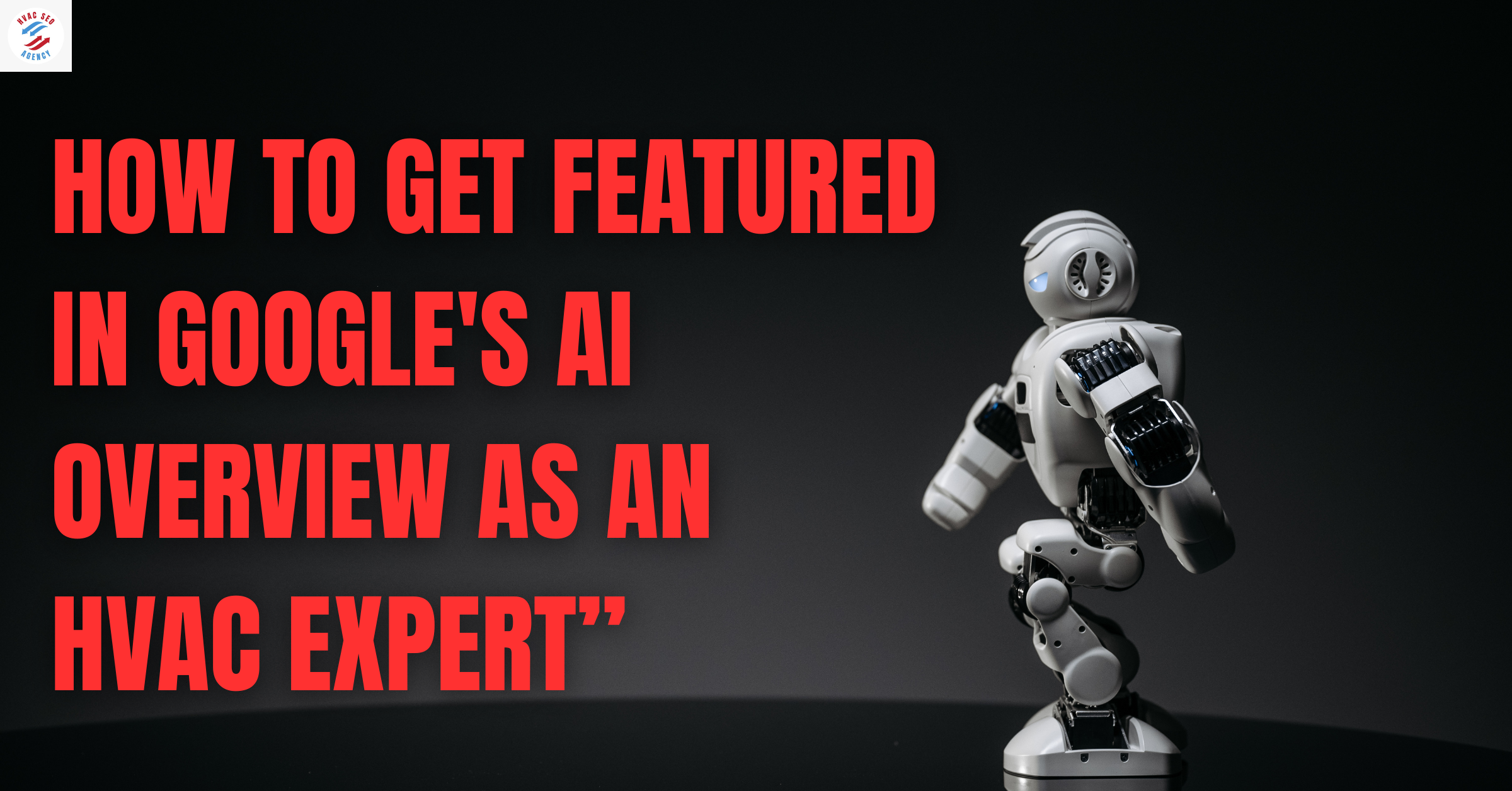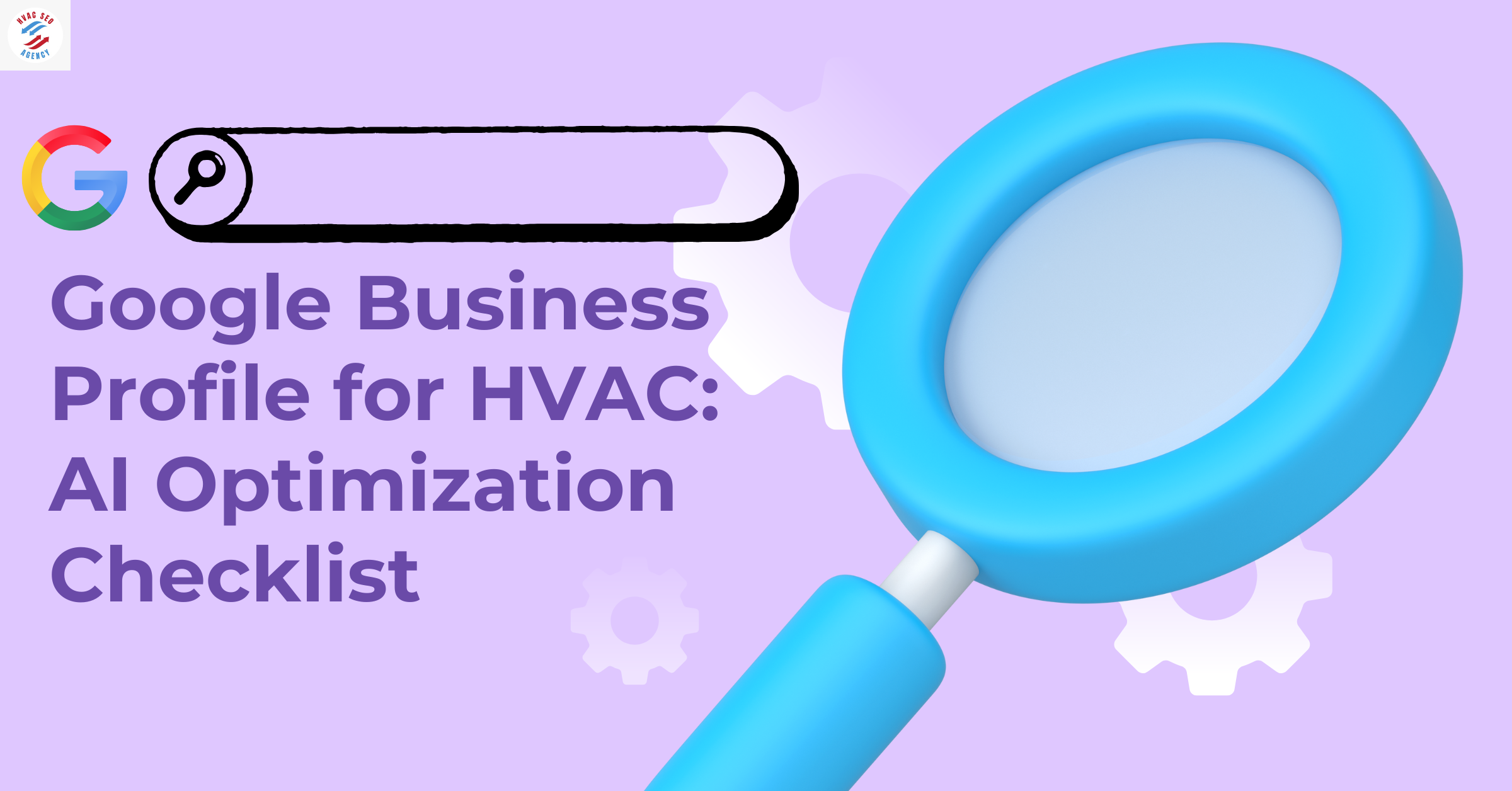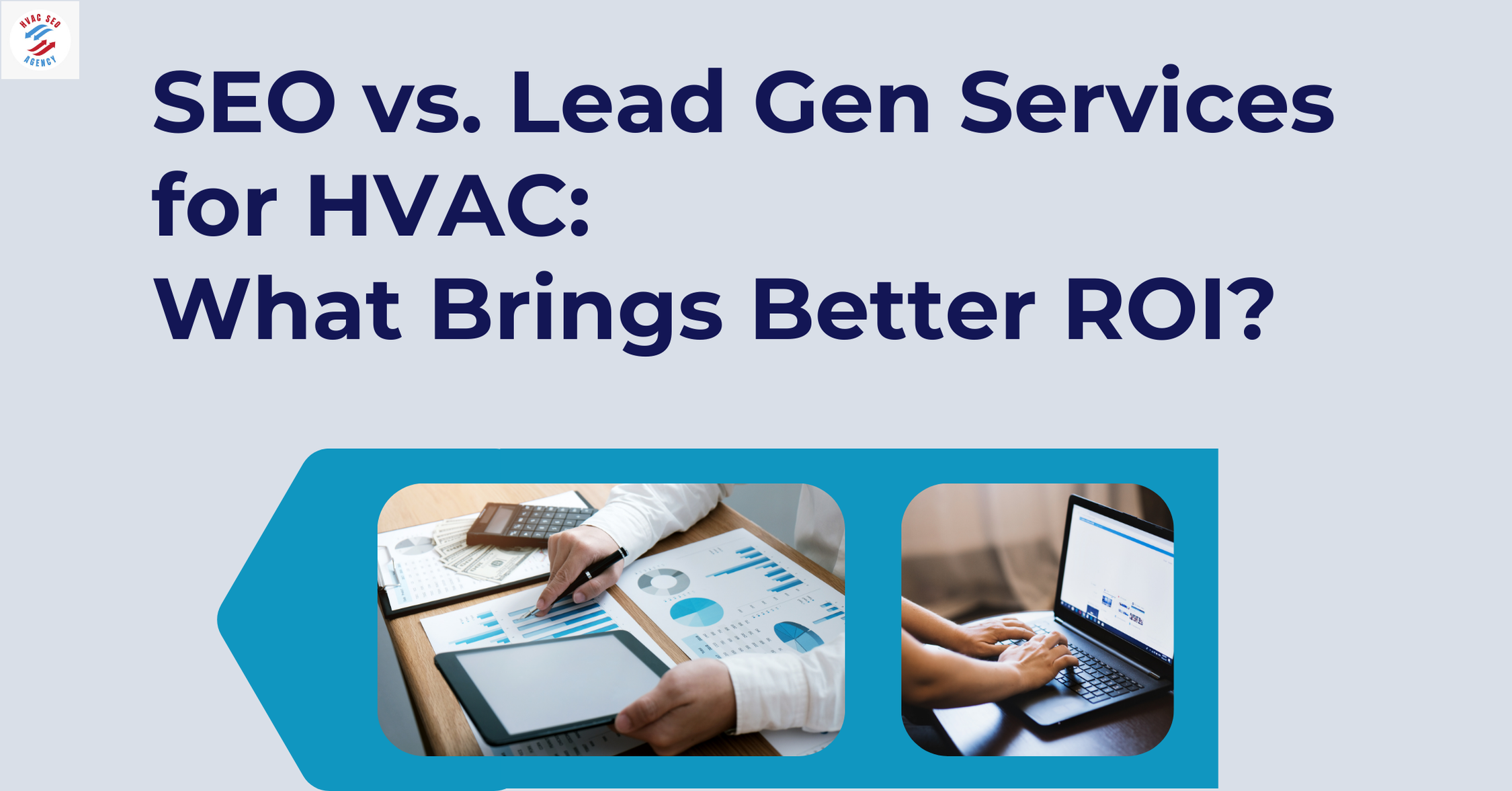HVAC Maintenance Plans: Are They Worth the Investment?

Why Preventive Maintenance is No Longer Optional
In today’s HVAC industry, service excellence isn’t the only factor influencing long-term customer relationships. Proactive businesses are leaning on two powerful strategies: HVAC maintenance plans and a strong digital presence to boost customer retention, stabilize recurring revenue, and reduce emergency breakdowns.
But here’s the twist: it’s not just about offering service plans. It’s also about being found online when customers search for them. Partnering with a trusted HVAC SEO Company in Atlanta can dramatically increase visibility and lead conversions. When your brand shows up at the top of Google for “AC tune-up near me” or “furnace maintenance in Atlanta,” you’re not only relevant, you're profitable.
And if you're an HVAC contractor aiming for immediate leads while your organic SEO grows, you can't overlook PPC for HVAC Contractors. It ensures you appear in high-converting ad positions when homeowners urgently need help especially during peak heating or cooling seasons.
Why this matters: A comprehensive HVAC maintenance plan coupled with aggressive SEO and PPC strategy allows you to:
Lock in predictable revenue with long-term service contracts
Increase customer lifetime value through repeat visits
Outrank local competitors and capture emergency service leads
Position your business as a trusted authority in the U.S. market
In the following sections, we’ll explore how HVAC maintenance plans work, their cost-benefit breakdown, real customer savings stats, and how marketing tactics like SEO and PPC play a crucial role in growing your HVAC business.
What is an HVAC Maintenance Plan?
An HVAC maintenance plan also known as an HVAC service agreement—is a scheduled contract between a homeowner or business and an HVAC company to provide routine maintenance services over a set period, typically one year. These plans are designed to keep heating and cooling systems running efficiently, prevent breakdowns, and extend the life of the equipment.
Key Components of HVAC Maintenance Plans:
Seasonal Tune-Ups: Typically includes one visit before the summer (for AC) and one before winter (for heating systems).
Priority Scheduling: Plan holders receive faster service during peak seasons.
Discounts on Repairs: Many plans offer 10–20% discounts on parts and labor.
No Overtime Charges: Emergency visits outside regular hours are billed at standard rates.
System Performance Checks: Technicians test efficiency, refrigerant levels, thermostat calibration, airflow, electrical connections, and more.
Types of Systems Covered:
Central Air Conditioners
Heat Pumps
Furnaces (Gas, Oil, Electric)
Ductless Mini-Split Systems
Air Handlers and Thermostats
Why HVAC Maintenance Plans Are Rising in Popularity
A 2024 survey by ACHR News found that 68% of HVAC businesses in the U.S. now offer some form of service agreement, compared to just 42% in 2015. This shift reflects a growing demand from consumers for peace of mind, predictable costs, and long-term equipment protection.
Table: Common Features in HVAC Maintenance Plans (USA)
Source: ServiceTitan, 2024 U.S. HVAC Business Report
Cost vs. Benefit Analysis of HVAC Maintenance Plans
For homeowners evaluating the worth of HVAC maintenance plans, the numbers speak for themselves. Preventive maintenance isn't just about peace of mind, it's about real financial savings, fewer emergencies, and long-term system efficiency.
Average Costs of HVAC Maintenance Plans in the U.S.
Source: HomeAdvisor, 2024; HVAC.com Industry Survey
Real-World Savings Example
According to a study by the U.S. Department of Energy:
Regular HVAC maintenance can reduce energy bills by up to 30%.
Systems that are not maintained lose 5% efficiency annually.
Emergency breakdowns cost an average of $300–$750 per incident, while maintained systems experience 60% fewer emergency calls.
Graph: Annual Cost vs. Potential Savings
Let’s now compare the cost of a maintenance plan to the potential savings in repairs, energy, and equipment lifespan extension. The graph below illustrates how even a mid-tier plan can pay for itself:
Graph: "Annual Maintenance Plan Cost vs. Potential Annual Savings"
Plan Cost: $350
Avg. Energy Bill Savings: $150
Fewer Emergency Repairs: $250
Extended Equipment Lifespan (Amortized): $100/year
Total Savings: ~$500+
Long-Term ROI Perspective
Many HVAC business owners reference the Step-by-Step Guide to Residential HVAC Installation as a benchmark for system setup. But what’s often overlooked is that the installation is just the beginning. Without routine maintenance, even a perfectly installed unit loses efficiency and becomes more prone to failure over time. This is where HVAC service agreements create real ROI for the homeowner and consistent revenue for the contractor.
Why Homeowners Choose HVAC Maintenance Plans: Behavioral and Psychological Insights
Understanding why homeowners opt into HVAC maintenance plans requires more than just economic analysis; it demands a look at decision-making psychology. For most customers, it’s not just about the numbers. It’s about security, trust, and control over future discomfort and expenses.
Top Psychological Drivers
Fear of Unexpected Breakdowns
Homeowners often recall at least one HVAC failure during peak seasons. These experiences create anxiety, especially during heat waves or winter storms. A HVAC service agreement helps reduce this uncertainty.Desire for Predictable Costs
Fixed monthly or annual plans remove the unpredictability of repair bills. Customers prefer manageable, known expenses over large, surprise costs.Trust in Professionals
Signing a plan builds a recurring relationship with the HVAC provider. Consumers feel more confident when their system is being maintained by someone they know and trust.Value Perception from ‘Included’ Services
Bundling services under one umbrella (like tune-ups, discounts, and priority response) increases perceived value, even if the actual usage is minimal.Marketing Influence
Clear communication and consistent follow-ups from contractors using effective content strategies often supported by Top HVAC Marketing Experts in Dallas keep the value of maintenance plans top of mind. And PPC campaigns targeting “AC repair plans” or “furnace maintenance offers” ensure they reach the right audience.
Table: Homeowner Motivations for Purchasing HVAC Service Agreements
Source: Decision Analyst Consumer HVAC Study, 2023
The real takeaway? People don’t just buy HVAC maintenance plans for their systems. They buy them for peace of mind, convenience, and the assurance of reliability.
In the next section, we’ll look at how offering HVAC service agreements can significantly increase revenue for contractors and how SEO and digital marketing amplify that opportunity.
How Maintenance Plans Increase Revenue for HVAC Contractors
While homeowners gain peace of mind, HVAC contractors unlock a powerful revenue stream by offering HVAC maintenance plans. These recurring service agreements not only stabilize cash flow but also strengthen long-term customer loyalty.
Revenue Benefits of HVAC Service Agreements
Predictable Cash Flow
Monthly or yearly subscriptions generate recurring revenue, helping HVAC companies weather slow seasons.Higher Customer Lifetime Value (CLTV)
A homeowner who signs up for a HVAC service agreement is more likely to use the same company for repairs, upgrades, and full system replacements. This boosts long-term profitability.Lower Lead Acquisition Costs
Maintaining existing customers costs far less than acquiring new ones. With contracts in place, contractors can spend less on lead generation and focus on upselling.Upselling Opportunities
During routine tune-ups, technicians can spot early signs of wear and recommend additional services or component replacements, turning a $99 visit into a $500 job.Data-Driven Marketing Efficiency
Contractors using SEO, CRM platforms, and PPC strategies target existing customers for seasonal offers and new plans. An HVAC SEO Company in Atlanta can help businesses build blog content, Google Business Profiles, and local landing pages that convert.
The Role of IoT in Modern HVAC Equipment
The real game-changer is how HVAC maintenance plans now tie into The Role of IoT in Modern HVAC Equipment. Smart sensors and Wi-Fi-connected systems allow real-time monitoring of HVAC performance. Technicians no longer rely only on scheduled visits they receive alerts about inefficiencies, filter clogs, and failing components before the customer even notices an issue.
This transforms the traditional HVAC service agreement into a smart, proactive maintenance model that:
Increases technician efficiency
Reduces emergency repair visits
Enhances customer satisfaction through automated system health alerts
Table: Impact of Maintenance Plans on HVAC Business Metrics
Source: ServiceTitan, HVACR Business Magazine, 2024
How to Build an Effective and Profitable HVAC Maintenance Plan
To maximize both customer satisfaction and contractor profit, HVAC businesses need to design HVAC maintenance plans that offer clear value, operational efficiency, and strong upsell potential. A poorly structured plan can lead to thin margins or customer drop-off. A well-built one becomes a cornerstone of recurring revenue and retention.
Key Elements of a High-Value HVAC Maintenance Plan
Tiered Pricing Options
Offer basic, standard, and premium packages. Each level should increase in service scope and perceived value.Basic: Tune-ups, basic inspection, filter check
Standard: Priority scheduling, minor repairs, discounts
Premium: No overtime fees, full system audit, loyalty perks
Automated Scheduling
Leverage CRM systems or HVAC-specific platforms to send reminders and book appointments automatically. This reduces no-shows and improves technician productivity.Transparent Terms
Avoid hidden clauses. Clearly explain what's included, what's discounted, and what’s excluded to build long-term trust.Upsell Triggers
Create technician scripts and digital forms for identifying system inefficiencies or aging equipment during visits. Use these checkups as opportunities to recommend upgrades.Digital Access and Payment Plans
Provide online account access, service history, and monthly auto-pay options to improve customer convenience and reduce churn.Local SEO and PPC Promotion
To drive plan enrollments, HVAC companies should work with a trusted HVAC SEO Company in Atlanta. Use local landing pages, service blogs, and targeted ads. Incorporate PPC for HVAC Contractors during seasonal campaigns like “Winter Heater Tune-Up Plan” or “Summer Cooling Protection Plan.”
Table: HVAC Maintenance Plan Features by Tier
Source: Internal HVAC Contractor Benchmarking Reports, 2024
A structured HVAC service agreement not only increases operational efficiency but also unlocks new marketing and sales pathways that contribute to long-term business growth.
Real Customer Experiences and Case Studies: Do HVAC Maintenance Plans Deliver?
To evaluate the true effectiveness of HVAC maintenance plans, it’s essential to move beyond theory and examine real-life outcomes. Both homeowners and contractors have reported measurable benefits from fewer emergency calls to improved system efficiency and increased business growth.
Homeowner Case Study #1: Reduced Emergency Repairs
Location: Denver, Colorado
Customer: Jane M., Single-family homeowner
Plan Type: Standard Maintenance Plan – $299/year
Results:
Before the plan: 2 emergency repairs/year (~$450 per incident)
After enrolling: 0 emergency calls in 18 months
Additional benefits: Improved airflow, lower energy bills, and early detection of a failing capacitor that was replaced proactively for 30% less than peak-season pricing
Testimonial:
"The peace of mind alone is worth the money. I used to dread every season change. Now I barely think about it."
Contractor Case Study #2: Revenue Stability and Higher Upsells
Business: Mid-sized HVAC company in Austin, Texas
Pre-plan Revenue Model: Project-based, high seasonality
After Launching HVAC Service Agreements:
Enrolled 1,800+ customers in tiered plans
Increased average customer lifetime value from $2,600 to $4,200
Reduced off-season revenue dip by 40%
Increased upsell rate on new systems by 25% during routine visits
Owner Insight:
"Our maintenance agreements have become the backbone of our cash flow. We use SEO and PPC campaigns guided by a local HVAC SEO Company in Atlanta—to bring in more plan signups year-round."
Source: Internal contractor surveys, HomeAdvisor homeowner interviews, 2024
These real-world examples reinforce that HVAC maintenance plans are not just an upsell tactic; they're a customer retention engine, a business stabilizer, and a long-term trust builder.
HVAC Maintenance Plans vs. On-Demand Service: A Value Comparison
While some homeowners prefer to call their HVAC contractor only when there’s a problem, this reactive approach often leads to higher costs and lower system performance. Comparing HVAC maintenance plans with on-demand services highlights a major shift in both homeowner expectations and contractor business models.
Side-by-Side Comparison: Plans vs. Pay-Per-Visit
Source: U.S. Energy Department, ServiceTitan HVAC Trends Report, 2024
Long-Term ROI: Preventive vs. Reactive
According to the U.S. Department of Energy, regular HVAC maintenance:
Reduces repair costs by 30–40% annually
Extends system life by up to 40%
Improves energy efficiency by up to 20%–30% over time
Conversely, homeowners who skip regular check-ups face:
Unexpected repair bills ranging from $300 to $1,000 per visit
Emergency technician wait times during peak seasons
Higher monthly energy usage from inefficient system performance
Contractor Business Impact
For HVAC companies, offering HVAC service agreements creates:
A reliable customer base
Year-round cash flow
Better technician scheduling efficiency
Lower marketing spend per client due to repeat engagement
Working with a digital partner such as an HVAC SEO Company in Atlanta enables contractors to promote both service plans and seasonal offers via local SEO and PPC for HVAC contractors, attracting both new and returning customers.
How Digital Marketing Drives Maintenance Plan Growth: SEO, PPC, and Local Visibility
Even the most valuable HVAC maintenance plans will go unnoticed without a solid digital marketing strategy. In the age of online research and mobile-first decisions, your visibility determines your profitability.
The Role of Local SEO in Promoting Maintenance Plans
Search engine optimization tailored to HVAC businesses helps you show up when local homeowners search for:
“AC maintenance near me”
“Furnace tune-up plans”
“Best HVAC maintenance plan in [city]”
A well-optimized site created and maintained by a professional HVAC SEO Company in Atlanta can dominate Google’s local 3-pack, generate high click-through rates, and funnel traffic directly into service plan signup pages.
Best Practices for HVAC SEO:
Publish blog content targeting keywords like HVAC maintenance plans and HVAC service agreements
Create dedicated service pages for your maintenance plans
Optimize Google Business Profile with updated NAP, service areas, and seasonal promotions
Build city-specific landing pages and schema markup
Using PPC to Capture High-Intent Leads
Pay-per-click advertising is critical during peak seasons and when SEO hasn’t fully ramped up. PPC for HVAC Contractors can target high-intent keywords like:
“Emergency AC repair with plan”
“Heating system service contract”
“Affordable HVAC maintenance deals”
Running geo-targeted Google Ads or Facebook lead campaigns can significantly boost plan signups, especially when combined with persuasive copy and limited-time offers.
Stat: According to WordStream, the average HVAC PPC conversion rate is 8.5%, with the top performers reaching over 12%—especially when promoting value-packed service plans.
Table: Digital Tactics and Their Impact on HVAC Plan Growth
Source: WordStream, BrightLocal, Search Engine Journal, 2024
FAQs and Final Verdict: Are HVAC Maintenance Plans Worth It?
Q1. Are HVAC maintenance plans really necessary if my system is new?
Yes. New systems still require regular maintenance to keep warranties valid, optimize energy use, and prevent early wear. Skipping annual service can void manufacturer warranties.
Q2. How often do technicians visit under a typical HVAC service agreement?
Most HVAC maintenance plans include two scheduled visits per year—one in spring for cooling systems and one in fall for heating.
Q3. Can maintenance plans actually save me money?
Absolutely. Regular service improves efficiency and detects issues early. Homeowners with maintenance plans report up to 30% savings on energy and repair costs annually.
Q4. Are these plans tax-deductible for businesses?
Yes. For commercial properties, HVAC service agreements are often considered a maintenance expense and may be deductible. Consult your accountant for specifics.
Q5. What if I sell my house—can the plan be transferred?
Many HVAC contractors allow plan transfers to new homeowners, adding resale value and peace of mind for buyers.
Conclusion
HVAC maintenance plans are no longer a luxury they’re a strategic necessity. For homeowners, these plans translate to fewer breakdowns, lower energy bills, longer equipment life, and peace of mind during extreme weather. For HVAC contractors, they provide consistent cash flow, stronger customer retention, and better forecasting.
In an industry where trust, speed, and reliability drive success, service agreements offer a win-win framework. But value isn’t just created in the toolbox—it’s amplified through visibility. Partnering with an experienced HVAC SEO Company in Atlanta and leveraging PPC for HVAC contractors ensures your maintenance plans get seen, clicked, and converted before your competitors even show up in search.
Bottom line: When structured right and marketed well, HVAC service agreements are absolutely worth the investment for your comfort, your savings, and your business growth.






